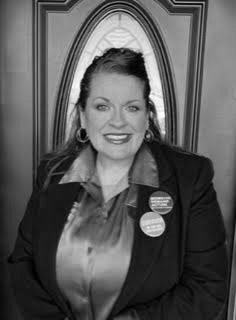Ten years after my son Jean-Ciar’s murder, words still don’t scratch the surface. Horrific, traumatic….It is a pain that goes through every fiber of who you are. The only words that come to mind are: “What a waste.”
My son would be 34-years-old this year. I wonder: What would he be doing? He would be raising his daughter, Ciara, born just four months after the shooting. Such an intelligent young man, he really could have been a changemaker in this world.
To the best of our knowledge, Ciar was killed right outside the Oklahoma City limits in a very, very small town, with high levels of crime, Spencer, Oklahoma. They say he was killed in front of 200 witnesses. Not one of them cooperated with the investigation—not one.
Wanting to find just one person who knew what I was going through, I attended a community wide meeting regarding local violence hosted by a number of organizations, including Moms Demand Action. At my first meeting, I was the only one who had experienced gun violence firsthand. Here are volunteers who haven’t been affected and who want to prevent this? I said to myself. How great is that?
Then I thought: Let me see what I can do.
My dad, a Presbyterian minister, always taught us about service to others, even in your pain. Once I started, it felt natural. I was a part of the first group of Everytown’s SurvivorsConnect program, which empowers gun violence survivors to speak with other survivors in need of support.
Through the program, I learned how important it was to give other survivors a sense that we are not alone. I met more and more families with remarkably similar stories about unsolved homicides.
I wish that, after losing Ciar, I could have called someone, to say, “What do I do?” but the subject always felt so taboo. But it’s not a victim’s fault that they were murdered; there was nothing wrong with our family. It just happened. It happens every single day.
Ciar’s case progressed, but it wasn’t getting solved, year after year after year. There was a main suspect, almost from the beginning; a confidential informant came forward, and the man was arrested. The sheriff’s office said, “We believe him, but we just need more evidence to take it to trial.” So they let him go.
We’ve gone through three sheriffs since.
I was very vocal in the press and on social media, telling witnesses: Put something in my mailbox, call me anonymously; I will meet you anywhere. Meanwhile the guy was in and out of prison, wreaking nonstop havoc on the community, wanted in a slew of other shootings. A repeat felon on everybody’s radar.
It was hard to sit and wait, my mind just racing, racing, racing, going nonstop. The anger sometimes felt insurmountable, and for a long time, I did not have an avenue or an outlet. Now, I channel that energy into my advocacy work. There, I can be aggressive, demanding that we make some changes; I can also be tender and gentle when helping other survivor families relate and connect.
One of the suspect’s family members contacted me one day and said: “Stop it on the news. He didn’t kill your son.” On another night, at 12 a.m., my house was shot at 12 times while my daughter and I were sound asleep. One of the bullets went through my garage door and lodged into my laundry room door.
I knew each time he was out of prison. I was forever looking around, scanning for him, hoping I didn’t see him in a store or at a stoplight. It was exhausting.
Then, this past March, he was shot and killed on the interstate. The investigator on that case called to let me know; I was relieved, but torn. First of all, it wasn’t the justice I thought I’d get. Second, I cannot find any happiness in another family going through what we went through.
He may have taken my son’s life, but there’s still a mom and siblings grieving, and children growing up without a dad. He is yet another person behind a new statistic; I cannot find joy in that.
My story is remarkably similar to so many people I’ve met through Moms Demand Action—especially survivors of unsolved homicides. It’s kind of weird to think that we’re all going through this horrible thing. Still, I’ve found some peace thinking: Thank goodness there’s someone else that understands.
by Sarah Burdine, as told to Sarah J. Robbins
